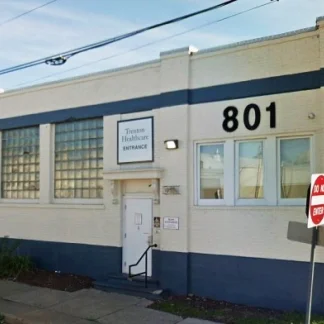Oaks Integrated Care
Oaks Integrated Care is a non-profit organization dedicated to provide behaviora...
Trenton Healthcare Clinic is a medication-assisted treatment facility located in Trenton, New Jersey. Trenton Healthcare Clinic offers treatment programs and services like Methadone Maintenance and Suboxone Maintenance combined with a holistic treatment approach to achieve long term recovery.
Trenton Healthcare Clinic, a Recovery Centers of America company, is taking action to curb the impact of opioids on the Trenton community by offering a full range of proven Medication-Assisted Treatment (MAT) services that include a methadone clinic, doctor supervised suboxone treatment, monitored maintenance, gradual detoxification, physical examinations, STD screenings, psychological assessments, substance abuse counseling, and job readiness program.
Trenton Healthcare Clinic believes in the proven efficacy of methadone as an indispensable treatment option for opiate addiction. Methadone can be used to treat all levels of opiate dependence but is particularly effective for moderate to heavy addiction. Methadone, in combination with counseling, is associated with better treatment outcomes. When used to treat opioid addiction, Methadone is only available at licensed Methadone clinics such as Trenton Healthcare Clinic’s location in Trenton, New Jersey. When taken daily, it can greatly reduce cravings, decrease or eliminate withdrawal symptoms, promote abstinence, and help patients remain productive in day to day activities.
Trenton Healthcare Clinic’s other MAT option is administration of doctor prescribed Suboxone, a partial agonist opioid that’s formulated specifically for the treatment of opiate dependence. Like Methadone, it binds to the brain’s opioid receptors, however, it does not fully stimulate the receptors. Although both medications are proven to be effective for treating opioid dependence, we believe that giving patients a choice, along with the expert guidance of an experienced doctor, can lead to much better recovery outcomes.
Our qualified substance use counselors work with patients to address psychological issues that can contribute to an addiction. Thanks to the various types of counseling provided, such as individual counseling, group counseling, and intensive outpatient counseling, our patients learn skills critical for long-term, sustainable recovery. This allows patients to gain insight into their thoughts and behaviors, and develop tools to help prevent relapse.
Contact us for more information: (609) 393-8000

Connect with Trenton Healthcare Clinic by calling their admissions team directly.
(609) 393-8000 Website Get DirectionsLegitScript has reviewed Trenton Healthcare Clinic as part of their certification program, and has determined that it meets the LegitScript standards for legality, safety and transparency.
LegitScript verified in April 2020
The National Association of Addiction Treatment Providers (NAATP) is a professional association that represents organizations in the field of addiction services. Founded in 1978, NAATP's mission is to advance addiction services and ensure that high-quality addiction treatment is available and accessible.
NAATP Member: Yes
State Licenses are permits issued by government agencies that allow rehab organizations to conduct business legally within a certain geographical area. Typically, the kind of program a rehab facility offers, along with its physical location, determines which licenses are required to operate legally.
State License: New Jersey License Number: 20000666
Group therapy is any therapeutic work that happens in a group (not one-on-one). There are a number of different group therapy modalities, including support groups, experiential therapy, psycho-education, and more. Group therapy involves treatment as well as processing interaction between group members.
In individual therapy, a patient meets one-on-one with a trained psychologist or counselor. Therapy is a pivotal part of effective substance abuse treatment, as it often covers root causes of addiction, including challenges faced by the patient in their social, family, and work/school life.
In individual therapy, a patient meets one-on-one with a trained psychologist or counselor. Therapy is a pivotal part of effective substance abuse treatment, as it often covers root causes of addiction, including challenges faced by the patient in their social, family, and work/school life.
Oaks Integrated Care is a non-profit organization dedicated to provide behaviora...
South Broad Street Counseling Services is a private rehab located in Trenton, Ne...
Liberation Way - Afton Avenue's reality-based treatment model utilizes a holisti...
Princeton HealthCare System - Clocktower Dr is a leading provider of healthcare ...